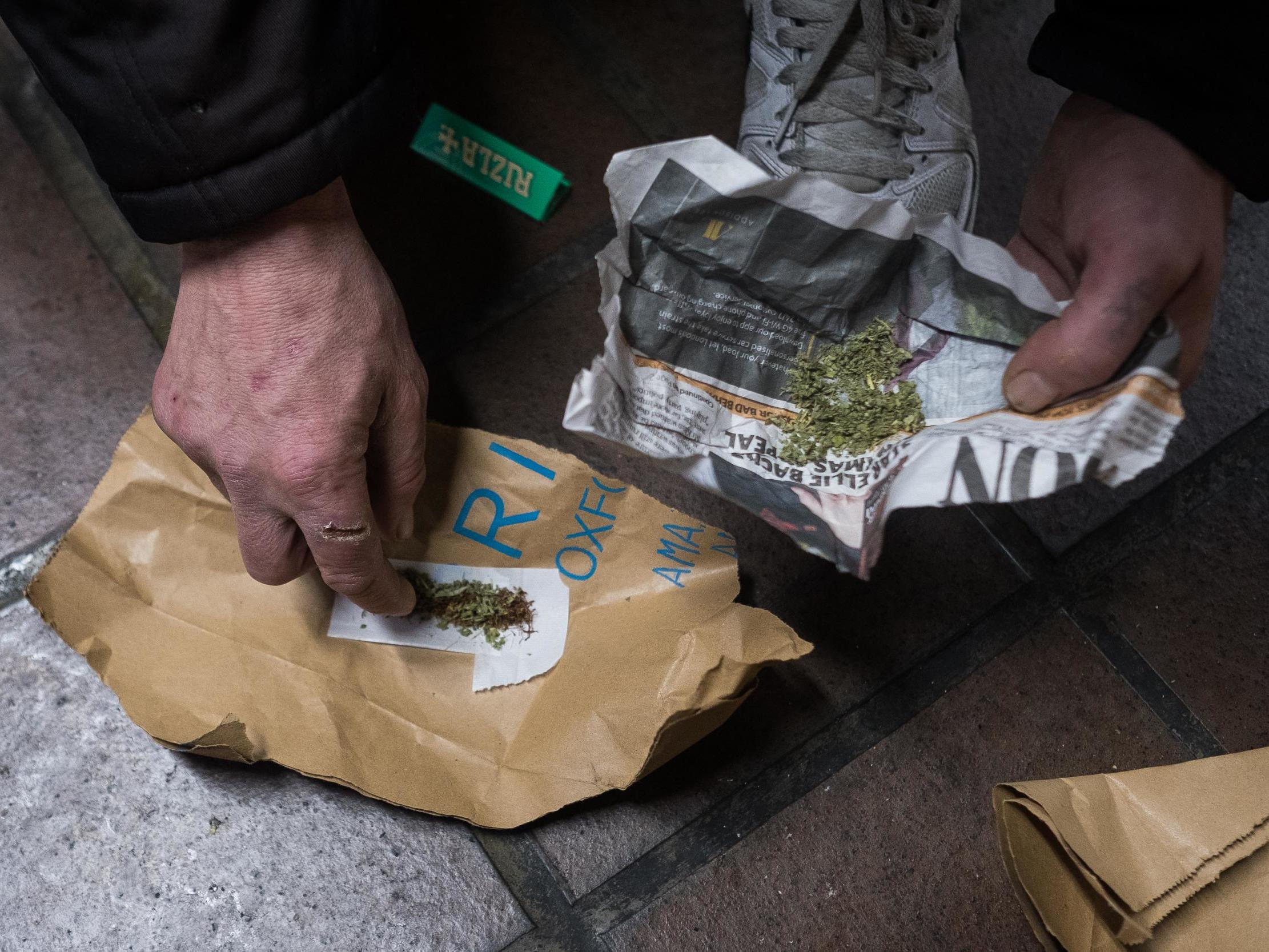Spice should be upgraded to Class A drug, say police and crime commissioners
Home Office warned synthetic substance poses 'most severe threat to public health in decades'

Your support helps us to tell the story
From reproductive rights to climate change to Big Tech, The Independent is on the ground when the story is developing. Whether it's investigating the financials of Elon Musk's pro-Trump PAC or producing our latest documentary, 'The A Word', which shines a light on the American women fighting for reproductive rights, we know how important it is to parse out the facts from the messaging.
At such a critical moment in US history, we need reporters on the ground. Your donation allows us to keep sending journalists to speak to both sides of the story.
The Independent is trusted by Americans across the entire political spectrum. And unlike many other quality news outlets, we choose not to lock Americans out of our reporting and analysis with paywalls. We believe quality journalism should be available to everyone, paid for by those who can afford it.
Your support makes all the difference.A group of police and crime commissioners (PCC) have called on the government to reclassify the drug spice as a Class A substance.
In an open letter to the Home Office, more than 20 Conservative commissioners from across the UK warned the synthetic substance poses the “most severe” threat to public health in decades.
Spice is currently a Class B drug, and is illegal to produce, supply or import in Britain.
However, campaigners have called for the substance to be upgraded to the highest category of controlled narcotics, alongside heroin and cocaine, in response to the harm its thought to cause users.
The open letter, from Lincolnshire PCC Marc Jones signed by 19 colleagues, says: “We are of one mind that the challenges faced by synthetic cannabinoid substances are an urgent public health issue that is growing in size and demand upon public services and currently disproportionately upon policing.
“Our concerns not only lie with the devastating effects spice has on its users but also the wider negative impacts felt by their families, communities and emergency services.
“We acknowledge that much is needed to fully address the problems spice presents within our communities and it is clear that this complex issue can only be addressed collaboratively.
“We feel that in order for PCCs to support government in tackling this issue that further central clarity and leadership is vital to raise this as a public health challenge.
“Ensuring local partners are clear what expectation is being placed on them to work in consonance with policing in order to ameliorate this problem for the good of society at large is key to that.”
Spice, designed to mimic the effects of cannabis, has been shown to potentially trigger hallucinations, psychosis and paranoia in users.
The drug has now become a problem on UK streets and its use is particularly widespread in prisons, where some staff have reported feeling its effects through second-hand smoke.
Additional reporting by PA
Join our commenting forum
Join thought-provoking conversations, follow other Independent readers and see their replies
Comments